 W
WTeyfuq Amitovich Abdul was a Crimean Tatar Hero of the Soviet Union who served as the commander of the 2nd battalion of the 175th Guards Rifle Regiment during the Second World War.
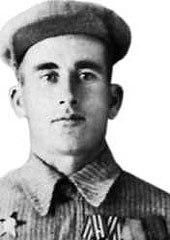 W
WSeitnebi Abduramanov was a junior platoon commander during the German-Soviet war who was awarded the Order of Glory 1st class in 1946, but was unaware of the award for years since he had been exiled to Uzbekistan due to his Crimean Tatar ethnicity after he was demobilized from the Red Army shortly after the end of the war.
 W
WUzeir Abduramanovich Abduramanov was a sapper in the Red Army during the German-Soviet War. After securing the safe transfer of troops across the Sozh river under heavy enemy fire and through icy water, he was declared a Hero of the Soviet Union on 15 January 1944. Despite having served in the Red Army throughout the entire war and achieving recognition for his bravery, he was still deported to Uzbekistan in 1945 because of his Crimean Tatar ethnicity. His entire family had also suffered exile in the deportation of 1944.
 W
WFetislyam "Petay" Abilovich Abilov, who lived under the name Anatoly for most of his life, was a Soviet Army officer who served as the commander of the 130th Guards Rifle Regiment during the Second World War. He was awarded the title Hero of the Soviet Union in 1990 after being nominated twice during the war years but rejected because of his Crimean Tatar nationality.
 W
WAndrei Lvovich Abrikosov was a Soviet stage and film actor. In 1941, he was awarded the Stalin Prize. He appeared in 39 films between 1931 and 1972. His son, Grigori Abrikosov, also was a film actor.
 W
WCapitaine Pavel Vladimirovich Argeyev, also known as Paul d'Argueev and The Eagle of Crimea, was a Russian-born flying ace of World War I, serving the French Armée de l'Air and Imperial Russian Air Service. Initially a high-ranking officer in the Imperial Russian Army, he transferred to France, where he became an aviator. He received a variety of decorations, both French and Russian, before dying in a flying accident in 1922.
 W
WPiotr Petrovich Belousov was a Soviet, Russian painter, graphic artist, art teacher, professor of the Leningrad Institute of Painting, Sculpture and Architecture named after Ilya Repin, People's Artist of USSR, Corresponding member of the Academy of Arts of the USSR, who lived and worked in Leningrad. He was regarded as one of the brightest representatives of the Leningrad school of painting, being most famous for his portraits and historical paintings.
 W
WSergei Aleksandrovich Bershadski was a Russian Empire historian and jurist.
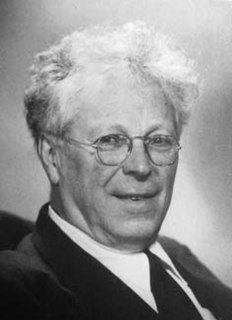 W
WAbram Samoilovitch Besicovitch was a Russian mathematician, who worked mainly in England. He was born in Berdyansk on the Sea of Azov to a Karaite Jewish family.
 W
WHaim Boger was an Israeli politician who served as a member of the Knesset for the General Zionists between 1951 and 1955.
 W
WIsaak Izrailevich Brodsky was a Soviet painter whose work provided a blueprint for the art movement of socialist realism. He is known for his iconic portrayals of Lenin and idealized, carefully crafted paintings dedicated to the events of the Russian Civil War and Bolshevik Revolution.
 W
WNoman Çelebicihan was a Crimean Tatar politician, lawyer, mufti of Crimean Muslims, and writer. He was the President of the short-lived independent Crimean People's Republic, established on November 26, 1917. He is known for having written the poem "Ant etkenmen", which became the Crimean Tatar national anthem. His early death at the hands of Bolshevik forces during the Russian Civil War is still commemorated in the Crimean Tatar nation.
 W
WBekir Vaap oğlu Çoban-zade was a Crimean Tatar poet and professor of Turkic languages who was one of the victims of the Great Purge.
 W
WAlexander Sergeevich Davydov was a Soviet and Ukrainian physicist. Davydov graduated from Moscow State University in 1939. In 1963-1990 he was Director of Institute for Theoretical Physics of the Ukrainian Academy of Sciences.
 W
WBernard Delfont, Baron Delfont, born Boris Winogradsky, was a leading Russian-born British theatrical impresario.
 W
WDmytro Ivanovych Dontsov was a Ukrainian nationalist writer, publisher, journalist and political thinker whose radical ideas were a major influence on the Organization of Ukrainian Nationalists.
 W
WFeodor Fedorenko, or Fyodor Federenko was a war criminal serving at Treblinka extermination camp in German occupied Poland during World War II. As a former Soviet citizen admitted to the United States under a DPA visa (1949), Fedorenko became a naturalized U.S. citizen in 1970. He was discovered in 1977 and denaturalized in 1981. Subsequently, he was extradited to the USSR, sentenced there to death for treason against his nation and participation in the Holocaust, and was executed.
 W
WIsmail Gaspirali was a Crimean Tatar intellectual, educator, publisher and Pan-Turkist politician who inspired the Jadidist movement in Central Asia. He was one of the first Muslim intellectuals in the Russian Empire, who realized the need for education and cultural reform and modernization of the Turkic and Islamic communities. His last name comes from the town of Gaspra in Crimea.
 W
WFanny Gordon, (Polish:Faina Markowna Kwiatkowska Russian: Фаина Марковна Квятковская - was Polish-Soviet composer. She was only female laykhte-muzik composer in Poland.
 W
WLew Grade, Baron Grade, OStJ, KC*SS, born Louis Winogradsky, was a British media proprietor and impresario. Originally a dancer, and later a talent agent, Grade's interest in television production began in 1954 when, in partnership, he successfully bid for franchises in the newly created ITV network, which led to the creation of Associated Television (ATV). Having worked for a time in the United States, he was aware of the potential for the sale of television programming to American networks. The Incorporated Television Company was formed with this specific objective in mind. Grade had some success in this field with such series as Gerry Anderson's various Supermarionation series such as Thunderbirds, Patrick McGoohan's The Prisoner, and Jim Henson's The Muppet Show. Later, Grade invested in film production, but several expensive box office failures caused him to lose control of ITC, and ultimately resulted in the disestablishment of ATV after it lost its ITV franchise.
 W
WPetro Grigorenko or Petro Hryhorovych Hryhorenko was a high-ranking Soviet Army commander of Ukrainian descent, who in his fifties became a dissident and a writer, one of the founders of the human rights movement in the Soviet Union.
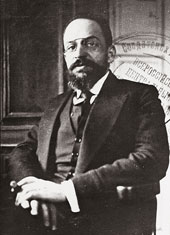 W
WAdolph Abramovich Joffe was a Russian revolutionary, a Bolshevik politician and a Soviet diplomat of Karaite descent.
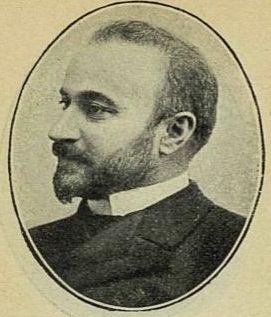 W
WSolomon Krym (1864–1936) was an agronomist and a Crimean Karaite politician.
 W
WAbdulla Latif-zade was a Crimean Tatar literary critic, poet, writer, and translator who was executed during the purge of Crimean Tatar intellectuals in the Stalin era.
 W
WLuke of Simferopol, known as Saint Luke the Blessed Surgeon, was an outstanding surgeon, the founder of purulent surgery, a spiritual writer, a bishop of the Russian Orthodox Church, and archbishop of Simferopol and the Crimea from May 1946. He was a laureate of the Stalin Prize in medicine in 1946.
 W
WMansur Mustafaevich Mazinov was the first Crimean Tatar pilot. Before the German invasion of the Soviet Union he worked for many years as a flight instructor, training many future pilots including the famous Amet-khan Sultan at the Simferopol aeroclub. During World War II he became a decorated combat pilot, flying sorties to support Soviet forces in blockaded Leningrad and other cities. After the war he briefly remained in the military before being forced to move to the Uzbek SSR because of his Crimean Tatar ethnicity. He died in exile as an employee of an airport in the Kazakh SSR in 1983 before the full right of return was allowed.
 W
WRefat Mustafaev was a Crimean Tatar communist who served as a regional party secretary and battalion commissar in the underground partisan movement of Crimea during World War II. After the Nazi troops were forced out of Crimea he was still subject to deportation to Kokand in the Surgun, forcing him to live away from him homeland of Crimea for the rest of his life because of his Crimean Tatar nationality. He was an activist for the right of return from the early days of the Crimean Tatar civil rights movement.
 W
WGrigory Ulyanovich Okhay was a Soviet MiG-15 flying ace during the Korean war, with an estimated 11 victories.
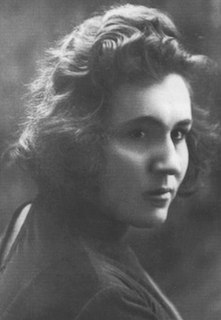 W
WMariya Vasilyevna Oktyabrskaya was a Soviet tank driver, mechanic and Hero of the Soviet Union who fought on the Eastern Front against Nazi Germany during World War II.
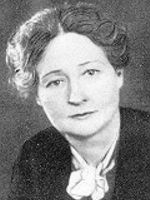 W
WOlga Vasilievna Perovskaya was a Soviet children's literature writer. Her most notable work Rebyata i Zveryata was published in 1925. It is a series of stories of about the various pets she and her sisters kept during their childhood. She was arrested on 15 March 1943 and sentenced to 10 years imprisonment in labour camps during the Great Purge. Her sentence was later modified to one of exile. During 1940–50, her books were not published. She was rehabilitated toward the end of the fifties. Rebyata i Zveryata has been translated into a number of languages including English, Malayalam and Tamil. In English, it has been published under two different titles Kids and Cubs and The Wolf in Olga's Kitchen.
 W
WPyotr Afanasyevich Pokryshev was a fighter pilot and squadron commander in the Soviet Airforce during the Second World War who became a flying ace with 18 individual and 9 shared confirmed shootdowns who twice awarded the title Hero of the Soviet Union.
 W
WAbdraim Izmailovich Reshidov was the deputy commander of the 162nd Guards Bomber Aviation Regiment of the Soviet Air Forces during World War II, known as the Great Patriotic War in the USSR. In 1945 while he held the rank of Major he was declared a Hero of the Soviet Union for his first 166 missions in a Pe-2 during the war. After the war he was heavily involved in the Crimean Tatar civil rights movement, and swore to the government that he would publicly commit self-immolation if they continued to refuse him the right of return.
 W
WSergey Leonidovich Sokolov was a Soviet military commander, Hero of the Soviet Union, and served as Minister of Defence of the Soviet Union from 22 December 1984 until 30 May 1987.
 W
WSelig Soskin was an Israeli agronomist and an early member of the Zionist movement.
 W
WLieutenant General Pavel Anatolyevich Sudoplatov was a member of the intelligence services of the Soviet Union who rose to the rank of lieutenant general. He became involved in several famous episodes, including the assassination of Leon Trotsky in 1940, the Soviet espionage program which obtained information about the atomic bomb from the Manhattan Project, and Operation Scherhorn, a Soviet deception operation against the Germans in 1944. His autobiography, Special Tasks, published in 1994, made him well known outside the USSR, and provided a detailed look at Soviet intelligence and Soviet internal politics during his years at the top.
 W
WShaul Gutmanovich Tchernichovsky was a Russian-born Hebrew poet. He is considered one of the great Hebrew poets, identified with nature poetry, and as a poet greatly influenced by the culture of ancient Greece.
 W
WYuri Konstantinovich Terapiano was a Russian poet, writer, translator, literary critic and a prominent figure in White émigré cultural life.
 W
WAlexander Dmitrievich Tsiurupa was a Bolshevik leader, Soviet stateman and Party figure.1917—1921 — Vice Chairman and, later, Chief of food of RSFSR 1922—1923 — Vice Chairman of Sovnarkom of RSFSR, USSR 1923—1925 — Chairman of Gosplan of USSR 1925—1928 — Narkom of external and internal trade of USSR
 W
WLeonid Velilayev was a Crimean Tatar soldier in the Red Army who was awarded the Order of Glory 1st class for actions in World War II. At the time, he was using the pseudonym "Leonid", a slavic name, like many other Crimean Tatars in the Soviet military, including Fetislyam "Anatoly" Abilov and Emir "Ivan Kirillovich" Chalbash.
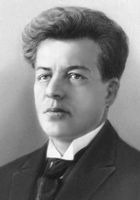 W
WPyotr Lazarevich Voykov was a Ukrainian Bolshevik revolutionary and Soviet diplomat. One of the participants in the decision to execute the former Russian Emperor Nicholas II in Yekaterinburg and his family members. Minister Plenipotentiary of the Soviet Union to the Polish Republic (1924-1927), he was assassinated in Warsaw by a White émigré. The use of Voykov's name in toponymy in modern Russia has been a cause of notable controversy.
 W
WEvgenii Vladimirovich Wulff (1885–1941) was a Crimean Russian Soviet biologist, botanist and plant geographer.
 W
WVladimir Evgenievich Zotikov was a prominent Russian and Soviet scientist and textile engineer best known for having developed the theory of cotton-spinning. He devoted his life to the study and improvement of mechanical technology of fibrous materials.